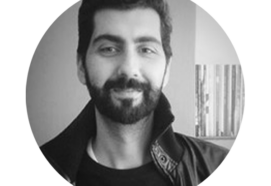In this Papers Podcast, Dr. Marica Leone discusses her JCPP paper ‘Melatonin use and the risk of self-harm and unintentional injuries in youths with and without psychiatric disorders’ (https://doi.org/10.1111/jcpp.13785). Marica is the first author of the paper.
There is an overview of the paper, methodology, key findings, and implications for practice.
Discussion points include:
- What is known about the relationship between sleep disorders, injuries, and self-harm in young people.
- Implications of the findings for child and adolescent mental health professionals.
- Recommendations that emerge from the research.
- Importance of good sleep hygiene and what this looks like.
In this series, we speak to authors of papers published in one of ACAMH’s three journals. These are The Journal of Child Psychology and Psychiatry (JCPP); The Child and Adolescent Mental Health (CAMH) journal; and JCPP Advances.
Subscribe to ACAMH mental health podcasts on your preferred streaming platform. Just search for ACAMH on; SoundCloud, Spotify, CastBox, Deezer, Google Podcasts, Podcastaddict, JioSaavn, Listen notes, Radio Public, and Radio.com (not available in the EU). Plus we are on Apple Podcasts visit the link or click on the icon, or scan the QR code.

Dr. Marica Leone holds a PhD in psychiatric and genetic epidemiology from the Karolinska Institute. She has a background in the life sciences, healthcare, and pharmaceutical industry, and was part of the Real World Evidence and Analytics team at the Janssen Pharmaceutical Company of Johnson and Johnson. Marica’s area of research focuses on the causes, consequences and co-occurring diseases of depression in youth and adults. Marica is currently working at the Boston Consulting Group in Stockholm as a strategy consultant, focusing on the health care and life science sectors.
Transcript
[00:00:01.380] Jo Carlowe: Hello, welcome to the Papers Podcast series for the Association for Child and Adolescent Mental Health, or ACAMH for short. I’m Jo Carlowe, a Freelance Journalist with a specialism in psychology. In this series, we speak to authors of papers published in one of ACAMH’s three journals. These are the Journal of Child Psychology and Psychiatry, commonly known as JCPP, the Child and Adolescent Mental Health, known as CAMH, and JCPP Advances.
Today, I’m interviewing Epidemiologist, Dr. Marica Leone, a Management Consultant at Boston Consulting Group, and the First Author of the paper, “Melatonin Use and the Risk of Self-Harm and Unintentional Injuries in Youths With and Without Psychiatric Disorders,” recently published in the Journal of Child Psychology and Psychiatry. This paper will be the focus of today’s podcast. If you’re a fan of our Papers Podcast series, please subscribe on your preferred streaming platform, let us know how we did, with a rating or review, and do share with friends and colleagues.
Marica, thanks for joining me. Can you start with an introduction about who you are what you do?
[00:01:11.040] Dr. Marica Leone: Hi, Jo, very nice to be here, and so, as that you pronounced very correctly, my name is Marica Leone, I come originally from Italy. At the moment, I live in Stockholm in Sweden. I’ve been living here for the past six years and, basically, I have a background in the life sciences, in healthcare and the pharmaceutical industry, and I hold a PhD in psychiatric and genetic epidemiology from the Karolinska Institute, which is a medical university here in Stockholm. I’m a Management Consultant for now. I joined the Boston Consulting Group here in Stockholm in January 2023, and my role focuses, basically, on helping businesses achieve their strategic goals and drive growth, basically, in a constantly changing business environment. And I mainly focus with clients in the healthcare and life science sectors.
Prior consulting, I work at the Department of Medical Epidemiology and Biostatistics as Karolinska, with the research group of Dr. Sarah Bergen, and my area of research focused on the causes, consequences and co-occurring diseases among youth and adults with depression. And to address these questions, we, basically, use the – a lot of data from several Swedish national registers.
[00:02:24.010] Jo Carlowe: Fantastic, thank you. We’re going to look at your paper today, but before we go into the detail, can you tell us what is known about the relationship between sleep disorders, injuries and self-harm in young people?
[00:02:36.780] Dr. Marica Leone: Well, sleep disorders, such as insomnia, are common in youth, particularly among those suffering from psychiatric disorders. So, problems with sleep in children and adolescents can, of course, have a significant impact on daytime functioning, on health and development and can have negative effects on cognitive skills, emotional regulation and behaviour. And from prior research, we know that disrupted sleep among young people is also a risk factor for unintentional injuries, such as falls, sport related injuries, and bicycle and vehicle accidents, but they could increase a risk for suicidal and non-suicidal self-harm.
[00:03:18.050] Jo Carlowe: So, let’s turn to the paper itself. This is “Melatonin Use and the Risk of Self-Harm and Unintentional Injuries in Youths With and Without Psychiatric Disorders,” recently published in the JCPP.
[00:03:29.510] Dr. Marica Leone: Hmmm.
[00:03:30.610] Jo Carlowe: Can you give us an overview? What did you look at and why?
[00:03:34.140] Dr. Marica Leone: So, first of all, well, given the established link between sleep disorders, injuries and self-harm in youth, we decided to explore whether sleep treatment could be associated with a lower rate of self-injury, but also, unintentional injuries, in young people with and without psychiatric disorders. Well, as you also said, we were looking into melatonin and the reason why we decided to focus on melatonin is because, basically, that is, I mean, the most commonly prescribed drug for sleep disturbances in children and adolescents in Sweden, but also in other countries. And just to bring a little bit more of context, I mean, I guess most of the listeners will know that melatonin is this naturally occurring hormone in our body that, basically, controls the sleep-wake cycle.
[00:04:22.030] Jo Carlowe: And can you tell us a little about the methodology that you used for this study?
[00:04:26.190] Dr. Marica Leone: Well, we conducted a population-based cohort study. So, we look at the entire Swedish population using the registers that I just mentioned at the beginning of this podcast. And we were able to identify more than 25,000 children and teenagers who initiated melatonin treatment between ages six and 18. So, our hypothesis, when we started the study, was that melatonin use could be associated with a decreased risk of self-harm. So, that’s what we did, we examined the risk of self-harm, but also, as I mentioned, also unintentional injuries, in periods before and after melatonin treatment initiation.
And advantage of our study is that we also estimated relative risks of injuries using a so-called within-individual design. So, basically, what it means is, like, usually, when you do this kind of analysis, so observational studies, you want to compare two groups, that needs to be as similar as possible to each other. So, in this case, would be one group that is using melatonin and another group that maybe doesn’t use melatonin and then, you want to compare, basically, the risk for some outcome. But in this case, people that use melatonin and people that do not use melatonin might be very different in so many different ways. So, comparing these two group might lead to false association, so something that is very difficult to interpret.
So, as I mentioned, one advantage was that we were able to use this within-individual design. So, that means that we were able to compare each person to themself before and after melatonin, to see if the risk of this person towards, like, self-harm or other injuries changed. And by doing this, basically, we could take into account a lot of background factors that do not change with time, for example, your sex, genetics, the age at melatonin initiation, early life risk factors, and so on.
[00:06:18.710] Jo Carlowe: What key findings did you come up with? What – can you highlight some of the findings?
[00:06:22.949] Dr. Marica Leone: In terms of the study population, so, basically, all the cohort that we were able to look at, we found out that out of these 25,000 plus children and teenagers who initiated melatonin treatment, over 85% also had at least one psychiatric disorder. Mainly we found that that was attention-deficit hyperactive disorder or ADHD, anxiety disorders, depression or autism spectrum disorder.
Then, in terms of risk, so we look at absolute and risk and relative risk. So, in terms of absolute risk, we observe that accidental injuries, so falls or transport accidents, they were occurring at a fairly similar rates before and after starting melatonin, so not much change in there. But in contrast, the risk of self-harm steadily increased in the months preceding melatonin prescription, picking in the month immediately prior to medication, and then dropping by about a half in the months following the initiation of treatment. And this was particularly evident among teens with depression and/or anxiety disorders and specifically among girls.
Basically, girls were displaying the greater rates compared to boys, of self-harm. Specifically, we saw, also, that girls were approximately five times more likely to harm themselves compared with boys. Then, in terms of relative risks, we found that the risk for self-harm were statistically significantly lower during the months following melatonin treatment initiation, and they were decreasing by around 40% in the month following melatonin treatment initiation.
Finally, as I said, a lot of these patients also received other diagnoses. We had a lot of patients with depression and anxiety. So, we wanted to check whether the use of other medications might have affected our findings. So, we, basically, repeated the analysis, excluding antidepressant users, and we found that there – we had the same patten of results. So, the risk of self-harm in the month following melatonin treatment initiation still decreased, specifically by around 55% among girls with psychiatric disorders, compared to the last unmedicated month.
[00:08:34.229] Jo Carlowe: So, Marica, what are the implications of your findings for CAMH professionals?
[00:08:38.420] Dr. Marica Leone: Well, I think that these findings are very important, but it’s very important, also, to understand what they could mean. So, several mechanisms could explain our findings. For example, it is possible that melatonin treatment directly reduces the risk of intentional self-harm by treating sleep disorders related to psychiatric comorbidities, especially anxiety and depression. So, that’s very important to keep in mind for CAMHs professionals. But it’s also important to take into account that another possibility is that a melatonin prescription could be also an indicator of the medical attention that these young patients are receiving in the healthcare system.
So, as a consequence, beyond melatonin treatment, a number of other factors could play a role in treating these sleep disorders and/or, basically, preventing self-harm in these patients. And these things could be Clinicians and caregivers increased awareness and monitoring of these patients, some other behavioural interventions, so maybe psychotherapy, or the placebo effect, or also, as we said, other medications. So, there are this explanation around that.
So, overall, these finding suggests that treating sleep disturbances associated with depression and anxiety might be an important factor in decreasing the risk of self-harm in this paediatric population. But, of course, further studies are, indeed, needed to examine the efficacy of melatonin and other sleep improvement interventions in reducing self-harm.
[00:10:09.750] Jo Carlowe: Are there any other recommendations that emerge from your research that you would like to mention?
[00:10:15.209] Dr. Marica Leone: It’s important to know that these findings are specific to youth with psychiatric disorders and shouldn’t be broadly applied to all young individuals. At least we can’t really prove that from our study. So, therefore, while good sleep practices are definitely crucial for everyone, the use of melatonin, particularly in children and adolescents, should be carefully monitored and discussed with healthcare professionals due to potential side effects and, also, dosage considerations.
[00:10:45.490] Jo Carlowe: Is there anything else in the paper that you would like to highlight?
[00:10:48.279] Dr. Marica Leone: Again, maybe a little bit of another limitation is the fact that this study did not take into account the possible role of non-pharmacological treatments, so, again, psychotherapy, as I mentioned before, or other behavioural interventions, which is very important, too, and it will be very interesting to look at.
[00:11:06.769] Jo Carlowe: You talked about the need for further research, so I’m just wondering, are you planning any follow-up research, or is there anything else in the pipeline that you would like to share with us?
[00:11:16.769] Dr. Marica Leone: Well, Jo, we’re actually not planning any follow-up studies at this moment. I mean, I’m not part of that research group myself and I’m not sure they are still following up this. But, of course, we hope that other groups will seek to replicate this finding and also, explore, for example, whether these results could also be applied to other cohorts, so, let’s say, adults.
[00:11:40.139] Jo Carlowe: And finally, what are your take home messages for our listeners?
[00:11:44.170] Dr. Marica Leone: So, I think I have three in total. So, number one is that melatonin is linked to the – a decreased risk of self-harm. So, again, our study indicates that using melatonin is linked to a lower risk of intentional self-harm in adolescent girls with psychiatric conditions. It’s important to know that we didn’t explore non-pharmacological treatments and that this study design can’t definitely determine whether melatonin directly causes this effect.
Number two is that sleep hygiene matters. This research supports the idea that enhancing sleep habits in young individuals might be a valuable strategy for reducing self-harm. And then, finally, number three, you need to consult a Doctor. So, before considering any new medication, even over-the-counter ones, like melatonin, in many countries nowadays, and especially in paediatric cases, it is extremely crucial to seek guidance from a medical professional.
[00:12:44.589] Jo Carlowe: You mentioned the importance of sleep hygiene. Can you just give a few tips of what good sleep hygiene looks like?
[00:12:52.000] Dr. Marica Leone: I guess different things, depends on preferences of each person, but I would say definitely, keeping a routine is very important. So, trying to go to sleep at the same time and waking up at the same time, also during weekends. I know it’s very difficult, but perhaps just, like, you know, trying a little bit could help. And then, of course, trying to have some downtime during – you know, one or two hours before going to sleep, I think, is very important. So, again, the usual, so limiting some screentime or something similar, just try to unwind and really try to prepare your body to sleep, and I guess other things.
I mean, personally, and this is, again, like, my personal opinion, I guess, it’s very important, also, that, you know, your bed is supposed to be a place where you sleep. So, your body can really, you know, recognise that as the place where you sleep, rather than, like, the place where you are, I don’t know, whatever, eating or, like, you know, like, working from your laptops or something like that. So, just creating good habits, and again, everybody could have different tips, but overall, yeah, very important to watch out for that.
[00:13:57.780] Jo Carlowe: Thank you so much. For more details on Dr. Marica Leone, please visit the ACAMH website, www.acamh.org, and Twitter @acamh. ACAMH is spelt A-C-A-M-H, and don’t forget to follow us on your preferred streaming platform, let us know if you enjoy the podcast, with a rating or review, and do share with friends and colleagues.



